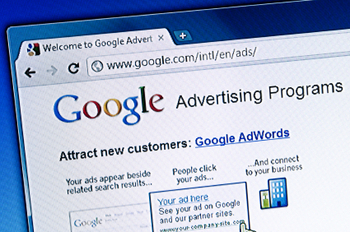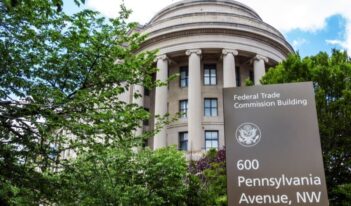
Federal judge approves FTC’s action over Google’s Safari practices.
A federal court recently approved the $22.5 million settlement reached three months ago between Google and the Federal Trade Commission (FTC) on charges that Google improperly tracked the user “cookies” on Apple’s Safari browser. Representing the largest civil penalty ever imposed for an FTC violation, the fine is the latest in a series of FTC enforcement actions for online privacy issues and is one that the FTC Chair Jon Leibowitz hopes will “send a message” to other companies to be more mindful of privacy issues.
In addition to the fine, the FTC also is requiring Google to remove tracking cookies from Safari users’ computers, ultimately erasing all tracking data by February of 2014. Somewhat controversially, Google was not required to admit wrongdoing and maintains that any violations were unintentional.
In August, the FTC accused Google of violating a previous settlement, a 2011 consent decree resulting from privacy complaints surrounding the now-defunct social networking site Google Buzz. As part of that settlement, Google pledged to refrain from using consumer data without consent.
Only months later, however, the FTC opened an investigation into Google’s practices on Safari and concluded that Google had impermissibly collected data from millions of users during 2011 and 2012. According to the complaint, Google expressly indicated to Safari users that it would not track their online activities, but the company did so anyway. Google not only posted assurances on its Web page that Safari users would not be tracked, but it further assured users by highlighting its membership to the Network Advertising Initiative, a coalition of online advertising companies that promotes consumer-friendly practices.
According to the FTC, Google told Safari users that their browser was automatically set up to block third party “cookies” —small pieces of data used to track online activity— so users had no need to opt into more restrictive privacy settings. However, Google allegedly circumvented Safari’s default settings and used these “cookies” to map users’ preferences and generate targeted advertisements. The FTC claims that this misrepresentation violated the Google Buzz decree and warranted a substantial civil penalty.
The kind of targeted advertising at the center of the FTC’s dispute with the company makes up a significant portion of Google’s earnings, with advertising revenue reaching an estimated $37 billion in 2012 and making up 94% of the company’s entire revenue. Google extracts information from emails sent over the Web as well as Google searches and browsing history, and then it uses this information to sell advertisements.
The enormous revenue derived from such tracking activity has led consumer groups to express their dissatisfaction with the fine levied against Google. Consumer advocacy organization Consumer Watchdog has argued that a $22.5 million fine would be insufficient, and insisted that a more appropriate figure would reach $3 billion. An “independent analyst” estimated that Google’s alleged violations produced an economic value of $8 billion.
In response to the news that the judge approved the $22.5 million amount as adequate, Consumer Watchdog attorney Gary Reback called the figure “loose change” for a company like Google, which he said can rack up $22.5 million of profits in a matter of hours.
Consumer groups also oppose the settlement because they assert it represents a weak mechanism to regulate the behavior of major companies. Reback indicatedthat Google’s privacy protection issues cannot be fully resolved by enforcing consent decrees and called for a better procedural mechanism to address what he considers to be widespread misconduct in the online industry. Reback emphasized that the settlement did not require Google to admit to any wrongdoing, an objection also voiced by J. Thomas Rosch, an FTC Commissioner who opposed the settlement in August.
In a statement released in August, the FTC responded to Commissioner Rosch’s concerns, arguing that allowing Google to deny liability is not contrary to the public interest. Rather, the FTC contends that the settlement sends a “strong message to Google and other companies” that the Commission “will respond to violations quickly and vigorously.” The charges against Google are part of a larger FTC initiative to protect consumer privacy rights, efforts that have formed the basis of over 30 legal actions since its inception.
The FTC is also engaged in a separate investigation of Google stemming from allegations of antitrust violations. Competing companies have expressed concern with the way Google ranks its search results, speculating that the Internet giant is promoting its own services at the expense of its competitors. The FTC is expected to resolve its antitrust investigation by the end of the calendar year.
Judge Susan Illston approved the Safari privacy settlement on November 16, 2012. The case is U.S. v. Google Inc., 3:12-cv-04177, U.S. District Court, Northern District of California (San Francisco).



